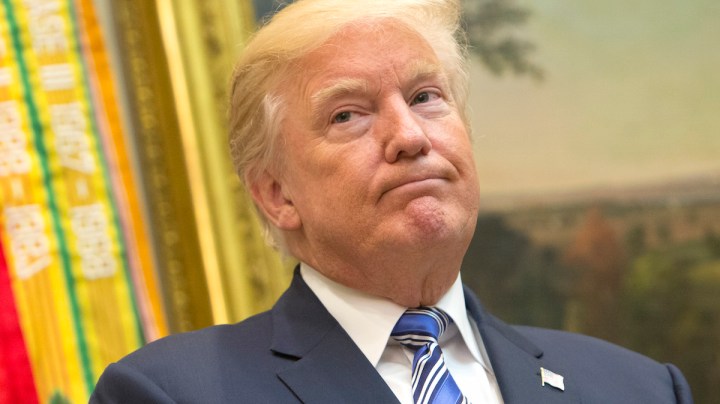Donald Trump’s Alma Mater UPenn Says RAISE Act Will Hurt the Economy

U.S. President Donald J. Trump listens during a Department of Veterans Affairs announcement. Photo by Chris Kleponis-Pool/Getty Images News
President Donald Trump recently threw his support behind the Reforming American Immigration for Strong Employment (RAISE) Act – a bill Sens. Tom Cotton (R-AR) and David Perdue (R-GA) co-sponsored that aims to completely overhaul the United States’ immigration system. If passed, the bill would cut immigrant by half by enacting a “merit-based” system that prioritizes those who speak English and have had more educational opportunities. It’d also limit the people residents and citizens can bring into the country. As Time‘s recent article – a quiz titled “Would You Qualify for Legal Immigration to the U.S.?” – demonstrates, for many, receiving a minimum of 30 points is out of reach for many. And while Trump stated that RAISE’s requirements will only allow those who can “contribute to our economy” to immigrate to the US, a recent University of Pennsylvania’s Wharton School report found that it’d have negative effects.
Trump’s alma mater reports that the RAISE ACT would cause a loss of 4.6 million jobs by 2040. The economy would also shrink by 2 percent, according to CNN. “If you have fewer workers, we will have less economic growth,” stated Kimberly Burham, a managing director at the Penn Wharton Budget Model. “Immigrants, especially new immigrants, are highly productive and if we decrease that number, that will harm economic growth in the short and long run.”
The White House, however, disputed Wharton’s findings, stating that the “job ‘losses’ under their RAISE Act model are far smaller than the reduction of foreign workers – effectively meaning a net increase in available jobs for Americans. The passage of the RAISE Act would raise wages and increase economic opportunity for Americans who have been left behind under the failed policies of past administrations.”
However, another analysis by New American Economy stated that cutting off “low-skilled” workers could adversely affect the small business sector. Past studies have found that immigrant-owned businesses employ 1 in 10 people living in the US. Census Bureau data finds that of the many immigrants who have started businesses, 2.1 million living in the US don’t have a bachelor’s degree, meaning they wouldn’t be able to enter the country under the RAISE Act.